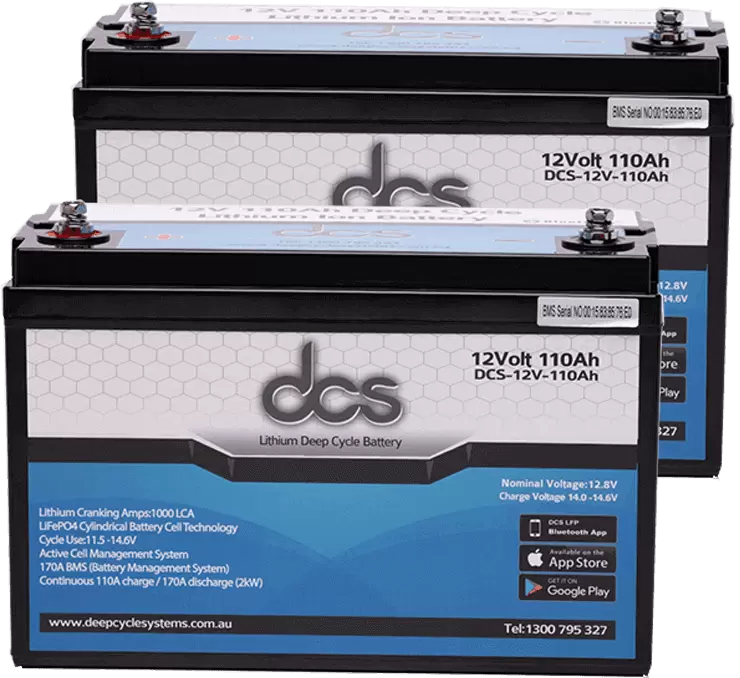If you own a boat, you understand the importance of keeping it secure and safe. One of the best ways to ensure your boat is as fast as possible is by utilizing the latest and greatest marine battery technology. Lithium marine batteries are quickly becoming a go-to option for boaters looking to optimize their security and safety. In that blog post, we’ll explore Lithium Marine Battery safety features and how they can help you get the most out of your boating experience.
What are Lithium Marine Batteries?
Lithium marine batteries are designed for marine use, offering numerous advantages over traditional lead-acid batteries. Unlike their counterparts, lithium marine batteries are lightweight, compact, and have a higher energy density, allowing them to store more power in a smaller space. These batteries utilize lithium-ion technology, ensuring efficient power delivery and a longer lifespan than conventional batteries. Lithium marine batteries also have a higher charge and discharge efficiency, providing boaters with a reliable power source for longer periods.
Lithium marine batteries are maintenance-free and do not require constant checking of water levels or topping up with distilled water like lead-acid batteries. That feature allows boaters to spend more time enjoying their adventures on the water rather than worrying about battery maintenance.
Why Choose Lithium Marine Batteries?
Lithium marine batteries have become increasingly popular among boaters for many reasons. One of the main advantages of these batteries is their superior energy density, allowing for longer runtime and greater power output. That means you can enjoy a longer day on the water without worrying about your battery running out. In addition to their extended runtime, lithium marine batteries are significantly lighter and more compact than traditional lead-acid batteries. That makes them easier to handle and install, reducing your boat’s overall weight and size.
Lithium marine batteries offer faster charging times, typically taking just a fraction of the time to charge a lead-acid battery. That means less downtime waiting for your battery to recharge and more time spent enjoying the water. Another major reason to choose lithium marine batteries is their longevity. These batteries have a significantly longer lifespan than lead-acid batteries, often lasting twice as long. That saves you money in the long run and reduces the environmental impact of battery disposal.
Understanding the Importance of Safety Features
When it comes to boating, safety should always be a top priority. That is why it is crucial to understand the importance of safety features in lithium marine batteries. Lithium marine batteries are known for their high energy density, longer lifespan, and faster charging capabilities. However, these powerful features also have certain risks if not properly managed.
Safety features in lithium marine batteries are designed to mitigate these risks and ensure a secure boating experience. One of the most critical safety features is fire protection measures. Lithium marine batteries are equipped with mechanisms to prevent thermal runaways, such as built-in fire retardant materials and automatic shutdown systems in the event of overheating. Overcharge and over-discharge protection is another essential safety feature. These batteries have built-in circuitry that prevents them from exceeding their safe voltage range, which could lead to damage or even explosion. Temperature management systems are also crucial in lithium marine batteries. They regulate the battery’s temperature to prevent overheating, as excessive heat can degrade battery performance and compromise safety.
Fire Protection Measures
When it comes to boating, safety should always be a top priority. That is why it is crucial to understand the fire protection measures that come with lithium marine batteries. Lithium batteries have gained popularity in the marine industry due to their numerous advantages, including higher energy density, longer lifespan, and faster charging capabilities. However, it is essential to recognize the potential risks of these batteries, such as thermal runaway and fire hazards.
Lithium marine batteries are equipped with various fire protection measures to mitigate these risks. One common feature is a built-in battery management system (BMS), which monitors and regulates the battery’s temperature, voltage, and current. In case of abnormalities, the BMS will activate protection mechanisms to prevent overheating and potential fires. Many lithium marine batteries also use flame-retardant materials for their casings and internal components. These materials are designed to withstand high temperatures and resist combustion, reducing the risk of fire spreading.
Advanced lithium marine batteries often incorporate thermal fuses or heat sensors. These devices will reduce the battery’s power supply if they detect excessive heat, preventing further temperature increase and potential fire.
Overcharge and Over-discharge Protection
One of the key safety features that lithium marine batteries offer is overcharge and over-discharge protection. These batteries have built-in management systems that monitor and regulate the charging and discharging processes to prevent potential damage and ensure optimal performance. Overcharging a battery can lead to overheating and can significantly decrease its lifespan. With overcharge protection, the battery management system will automatically detect when the battery is fully charged and stop the charging process to avoid overcharging.
On the other hand, over-discharging a battery can also cause damage and reduce its overall capacity. Lithium marine batteries come with over-discharge protection, which prevents the battery from being discharged below a certain voltage level. That protection feature helps prolong the battery life and ensure enough power is always available for the boat’s electrical systems.
These safety features protect the battery and provide peace of mind for boat owners. With overcharge and over-discharge protection, boaters can trust that their lithium marine batteries are operating at their best, delivering reliable power while keeping the battery’s lifespan intact. Understanding and appreciating these safety features is essential to make the most of your boating experience and ensure a secure and worry-free time on the water.
Temperature Management Systems
One of lithium marine batteries’ most crucial safety features is their temperature management systems. These systems are designed to monitor and control the temperature of the batteries during use. Lithium batteries can generate heat, especially during high demand or charging periods. If the temperature rises too much, it can lead to thermal runaway, resulting in a fire or explosion. Temperature management systems help prevent that by continuously monitoring the battery’s temperature and regulating it within safe limits.
These systems typically consist of sensors that detect changes in temperature and control circuitry that adjusts the charging or discharging rates to maintain a safe temperature range. They can also incorporate cooling mechanisms, such as fans or heat sinks, to dissipate excess heat. By effectively managing the temperature, these systems ensure the longevity and safety of lithium marine batteries. They protect against overheating, damaging the battery cells and reducing their performance or lifespan. They also minimize the risk of thermal runaway, providing peace of mind to boat owners.
Waterproof and Vibration Resistant Designs of lithium RV battery
One of the key safety features to consider when choosing a Lithium RV Battery is its waterproof and vibration-resistant design. Boating will be a bumpy and wet experience, so having a battery that can withstand these conditions is crucial.
Waterproof designs protect the battery from water damage, whether from rain, splashing waves, or accidental submersion. That feature is particularly important as water and electricity don’t mix well, and exposure to water could lead to electrical malfunctions or even a short circuit. With a waterproof design, you can know that your battery will continue to operate safely even in wet conditions. Also, vibration-resistant designs help protect the battery from the constant jolts and vibrations inherent to boating. These vibrations can cause internal damage to the battery’s components, leading to performance issues or a complete failure. Investing in a lithium marine battery with vibration resistance ensures that the battery remains reliable and efficient even in the harshest boating environments.
When selecting a lithium-marine battery, choosing one with a waterproof and vibration-resistant design is essential. These features guarantee the battery’s longevity and performance and contribute to a secure boating experience. With a battery that can withstand water and vibrations, you can focus on enjoying your time on the water without worrying about potential electrical issues or failures.
FAQs about Lithium Marine Batteries
1. Are lithium marine batteries safe to use on boats?
Lithium marine batteries are safe to use on boats when designed with proper safety features. These batteries undergo rigorous testing to ensure their safety, including measures to prevent overheating, overcharging, and over-discharging. Additionally, they are built to be waterproof and vibration resistant, providing extra protection against potential hazards on the water.
2. How long do lithium marine batteries last?
Lithium marine batteries are known for their longevity. On average, these batteries have a lifespan of 8-10 years, significantly longer than traditional lead-acid batteries. With proper care and maintenance, they can last even longer, making them a cost-effective choice for boat owners.
3. Can lithium marine batteries be used in all types of boats?
Lithium marine batteries will be used in various types of boats, including fishing boats, yachts, sailboats, and pontoon boats. They are designed to be versatile and adaptable to different marine environments.
Conclusion
In conclusion, the safety features of lithium marine batteries play a crucial role in ensuring a secure boating experience. With their advanced technology and innovative designs, these batteries offer a wide range of benefits, making them a superior choice for boating enthusiasts. From fire protection measures to overcharge and over-discharge protection, lithium marine batteries prioritize safety above all else. Their temperature management systems ensure optimal performance even in extreme weather conditions, and their waterproof and vibration-resistant designs provide added durability and reliability.
By choosing lithium marine batteries, boaters can enjoy peace of mind knowing they are equipped with cutting-edge safety features that mitigate the risk of accidents and potential dangers. It is important, however, to carefully read and follow the manufacturer’s instructions and guidelines to maximize the performance and safety of these batteries. Whether you’re a seasoned sailor or a recreational boater, investing in lithium marine batteries is a smart choice for a secure and worry-free boating experience. So, switch today and embrace the advanced technology that lithium batteries bring to the marine industry. These state-of-the-art power sources will undoubtedly enhance your safety and enjoyment on the water.



